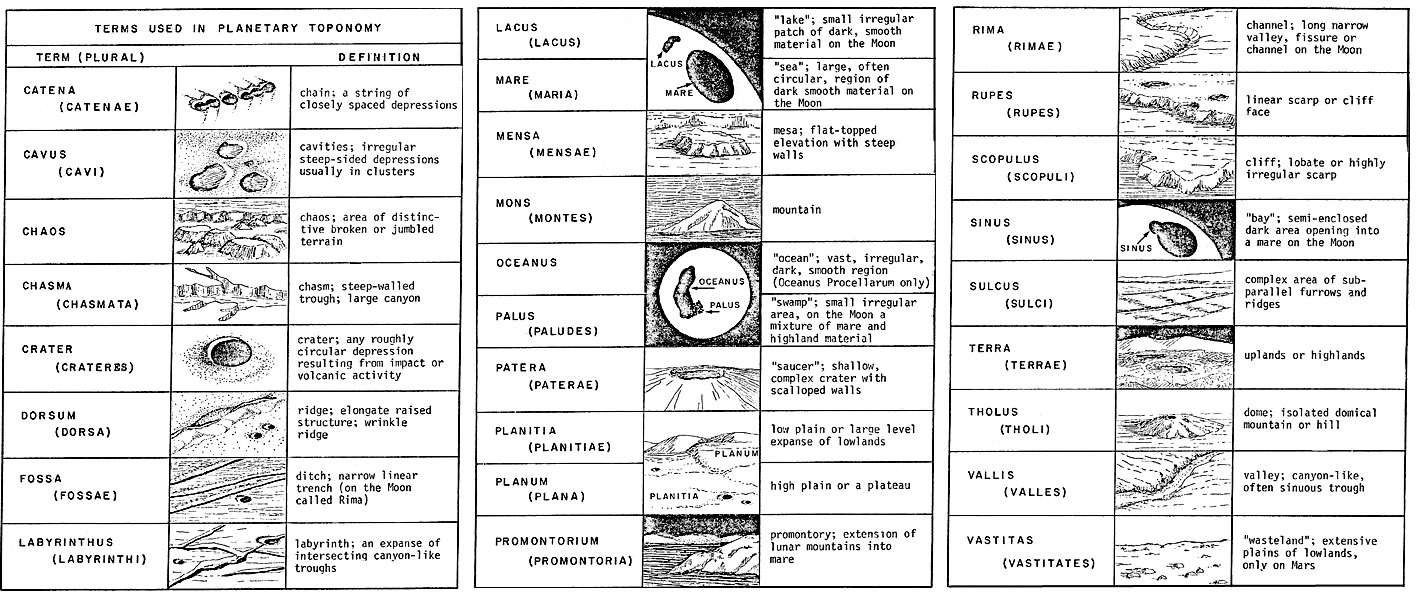July 3, 2013
Landform Types
graphic by Ann Gifford, then at Air & Space Museum, Smithsonian Institution, Washington, D.C.
If you can't tell a planitia from a dorsum this may be a chart for you. Back in 1979 when Farouk El Baz was heavily involved with planetary
nomenclature he had his colleague Ann Gifford create this illustrated guide to descriptive terms for landforms. These are terms used on Mars
and other places as well as the Moon; in fact only about half of these descriptors were used for the Moon. Now the IAU recognizes 55 types
of landforms - many from Saturn's satellites. This list was included as an appendix in the minutes of the 6th meeting of the IAU planetary
nomenclature group held in Montreal in August 1979. During that meeting five new descriptor terms were introduced - flexus, linea, macula,
regio and terra, and two others generally used were officially approved: oceanus and solitudo. Those who study lunar domes may recognize
Ann Gifford's name. While a student at Brown University she coauthored with Jim Head the classic 1980 paper, Lunar mare domes -
Classification and modes of origin.Ann published a number of other valuable studies, including an early paper with me on the Big Backside Basin,
more commonly called the South Pole - Aitken Basin.
Chuck Wood
Note: I thank Brad Smith for reminding me of this nice resource.
COMMENTS?
Click on this icon File:PostIcon.jpg at the upper right to post a comment.




